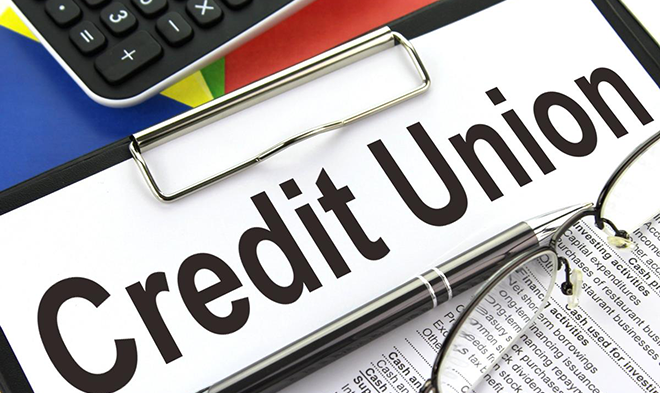Credit Unions Vs. Banks – What Are The Differences?

If you’ve been banking for years with one of Canada’s big banks, you might wonder what you’re missing because you’re not at a credit union and vice versa. Why are there banks and credit unions? Don’t they both do generally the same thing? So, why call them by different names?
The reason is simple: They are different. In fact, they are different in a lot of significant ways that could be the convincing reason to move your money from one to the other. Credit Unions are miles apart from banks and depending on your own personal financial and credit building needs, you might discover that one suits you far better than the other.
So, what are the differences between credit unions and banks? Let’s take a look:
Not-for profit
Credit unions are not-for-profit organizations, whereas banks are for-profit endeavours.
Ownership
Credit Unions are owned by the members, who are also the customers. In order to bank with a credit union, you must buy at least one share to become a member. This gives you a vote when it comes to issues regarding the overall running of the organization. You also see dividends each year from the shares you own. You own the credit union; you have a say; you reap the rewards. At a bank, shareholders are also owners, but the shareholders are simply those investors who have decided to buy shares in the financial institution. They may or may not be customers of the bank. They may have no interest in the company at all, outside of the dividends they earn on their shares.
The board
A credit union’s board is made up of volunteers who are voted on by the members of the credit union, which is you, as a customer. At a bank, board members are paid and chose by shareholders.
Cooperation
While banks often compete with each other and rarely share any information or resources at all, credit unions work together and share their resources. As a credit union member, you will find you can use the machines and services of other credit unions across Canada as though they belong to the same financial institution.
Community
Credit unions serve the specific communities they are in, as opposed to banks, which are nationwide. As such, credit unions are more involved in the specific issues that face their home communities and understand their members. They are definitely more open to helping you with your goals, such as credit building, looking for a fresh start or becoming debt free.
Cost
Credit unions can offer much lower fees on their services and higher interest on their savings products. The sharing of resources with other credit unions and the fact that they are not-for-profit enables them to bring significant savings to their members. This can be great for your goals to be debt free or if you're looking for a fresh start altogether.
Products
Banks tend to offer more products than credit unions do. Credit unions often have fewer credit card options, fewer investments choices, and fewer account types to choose from. However, a credit union is going to be more open to help you with your credit building efforts.
While there are many plus sides to a credit union, the one downside that tends to lead people away from them is that they offer fewer choices. This is the clinching difference that sees more people banking with the major Canadian financial institutions over credit unions. If you're here, though, chances are you have a big interest in credit building, so a credit union may be your best choice and quickest route to becoming debt free. You might also find a credit union is your best bet for a fresh start.
PS. While we are on the subject on banks, have you ever wondered if closing your bank account will affect your credit? We have the answer!
With so many factors playing a role in your credit score, it's easy to worry about every financial change you make. How will this look on my credit report? Am I shooting myself in the foot by making this move? We tend to second-guess ourselves whenever we make a change related to our finances. Closing your bank account can be one of these changes. Will it affect your credit? Keep reading to find out!
The answer is no, with one exception. Bank accounts have no bearing on your credit score unless your account is in the red and you owe money to the bank. When you owe any institution money and you're late to pay them, it's going to have a negative effect on your credit score. If your debt goes to collections, you can expect an even worse hit on your credit. However, closing a bank account that is in good standing will have no effect on your credit report.
So, as with all your other accounts, make sure you're keeping them in good standing. Before you close your bank account, make sure you don't owe any fees. Once you've closed it, you have nothing to worry about when it comes to your credit.
Closing a credit card account on the other hand can have an impact
Closing a credit card account is different as it can increase your usage percentage and have a negative impact on your score. If you are unfamiliar with what a usage percentage is, this is an easy example. Let's say you have two credit cards each with a $10,000 limits, your total credit is $20,000. If you have a $5,000 balance on one of those cards, you have a credit usage of 25%. This is considered a good credit usage. However, if you close one of these cards, you now have $10,000 total credit with a $5k balance and your credit usage percentage has gone from 25% to 50% without spending a dime. This increase in your usage percentage can harm your credit score.
You can also hurt your credit score when closing a credit card that you've had for a long time. Credit products with a long history reflect well on your score, which is why closing an old credit card account can have a negative impact. These same issues can be presented by closing other types of revolving credit, such as lines of credit, as well.
********
Refresh financial offers custom credit building solutions to help you build your credit score FAST.






Leave a Reply